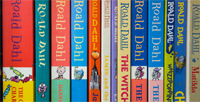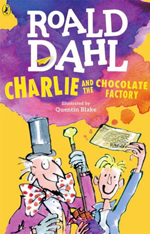‘Sticks and stones may break my bones, but words can never hurt me.’
It’s a childhood rhyme which children were taught to fend off name-calling bullies. It is a jaunty response, but of course it is patently untrue. Words can carry significant force and can wound as sharply as a knife, albeit without drawing blood.
So words do need to be used with care. Joseph Conrad likened writing and publishing to shooting a gun –once the work was published, the trigger had been pulled, and the word, like a bullet, had been shot, with no further possible control. What would it hit? Would it strike the intended target or not? What wound might it inadvertently cause?
It is interesting to start with Conrad, as there is fierce debate about the language he used in his novel Heart of Darkness, for example, with Chinua Achebe calling him ‘a bloody racist’. Achebe makes a compelling case, though others argue that it is inappropriate to hold Conrad up against modern standards of racial understanding and discourse, and that he should be seen as a figure of his time, in context.
 So what about Roald Dahl, long-standing favourite of children’s literature and various film adaptations? The author of Charlie and the Chocolate Factory, James and the Giant Peach, and The BFG? Loveable Dahl? Except he wasn’t so loveable. He had some seriously unpleasant anti-Semitic views, but more to the point here is some of the language in his books and some of the assumptions he made.
So what about Roald Dahl, long-standing favourite of children’s literature and various film adaptations? The author of Charlie and the Chocolate Factory, James and the Giant Peach, and The BFG? Loveable Dahl? Except he wasn’t so loveable. He had some seriously unpleasant anti-Semitic views, but more to the point here is some of the language in his books and some of the assumptions he made.
Any reader of Roald Dahl knows that one of the great draws of his books for children is their nastiness, their dollops of the disgusting, their hard edges poking through the whimsy. That is the appeal. So there has been consternation this week as his publisher and the Dahl estate have announced that they are editing the language of future editions. No character in future will be called ‘fat’, not even Augustus Gloop.
That is just one of the changes, following consultancy with Inclusive Minds, who work to ensure that every child may ‘be able to find themselves in books’. That surely is a laudable aim, but there has been an outcry against the ‘botched surgery… carried out on some of the finest children’s literature in Britain’. Salman Rushdie, no stranger to controversies about free speech as we have seen, calls it ‘absurd censorship’. The debate as even reached Parliament, with Prime Minister Rishi Sunak, hitherto not known as a linguistic or literary critic, decrying the changes.
 Is such intervention right? If Dahl’s work is no longer deemed acceptable, should it just go out of print and disappear, as Philip Pullman suggests? The continuing popularity of the books makes that an impossibility, so should readers just have to accept what Dahl put on the page if they pick up one of his novels? If they don’t like it, they can put it down again. Are an author’s words sacrosanct?
Is such intervention right? If Dahl’s work is no longer deemed acceptable, should it just go out of print and disappear, as Philip Pullman suggests? The continuing popularity of the books makes that an impossibility, so should readers just have to accept what Dahl put on the page if they pick up one of his novels? If they don’t like it, they can put it down again. Are an author’s words sacrosanct?
It is relevant in this debate that Dahl’s books are for children. Children are highly impressionable and words do carry weight. Racist depictions of the Oompa Loompas in Charlie and the Chocolate Factory were edited out a long time ago and surely nobody would object to that. And while Dahl himself was happy to offend women, there might be a good argument for widening the scope of Dahl’s possibilities for the roles of women. But tinkering with aspects of the language will not change the nature of the books. As this article says,’ the books themselves will remain spiky, problematic and unapologetically nasty.’ And that’s a good thing.